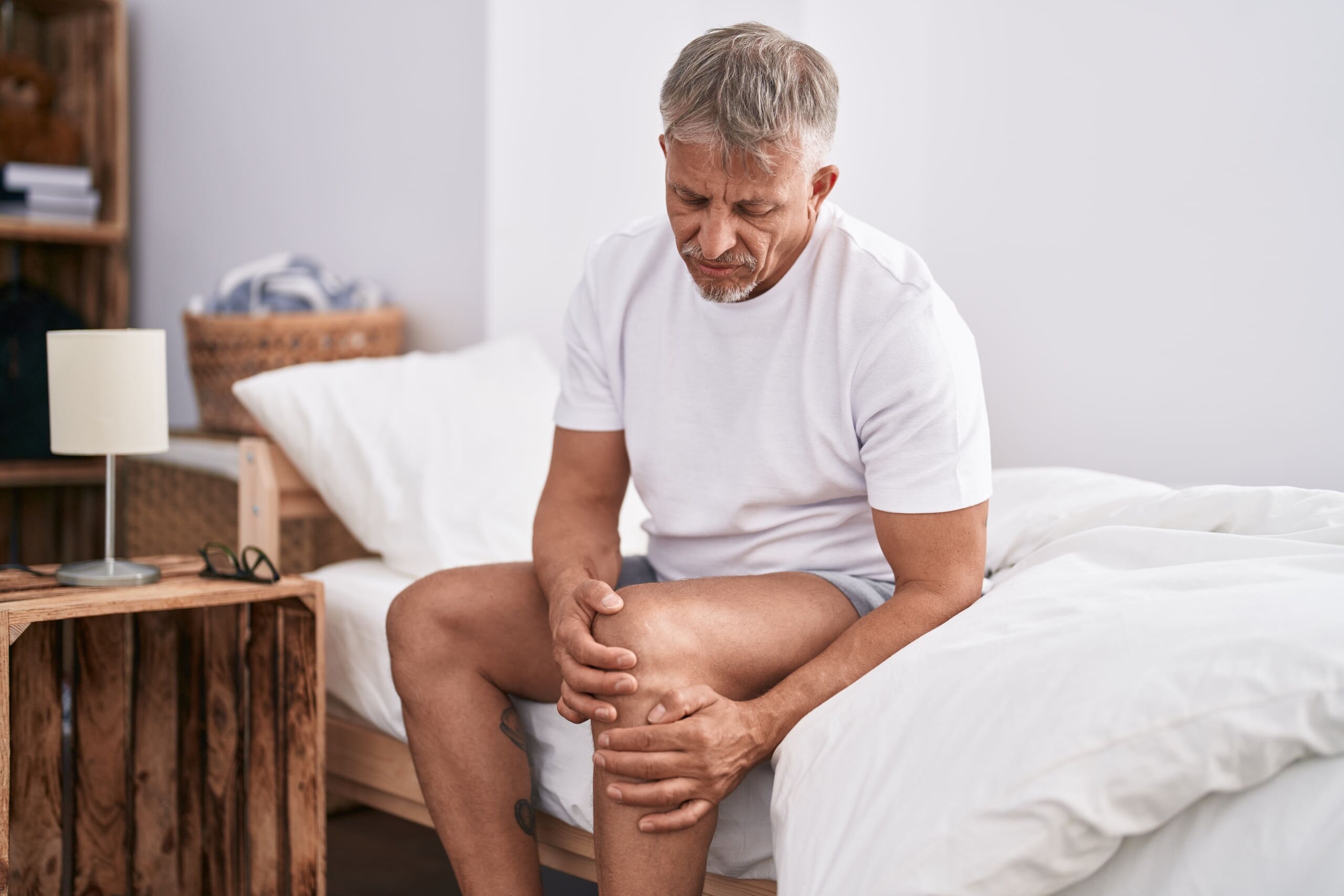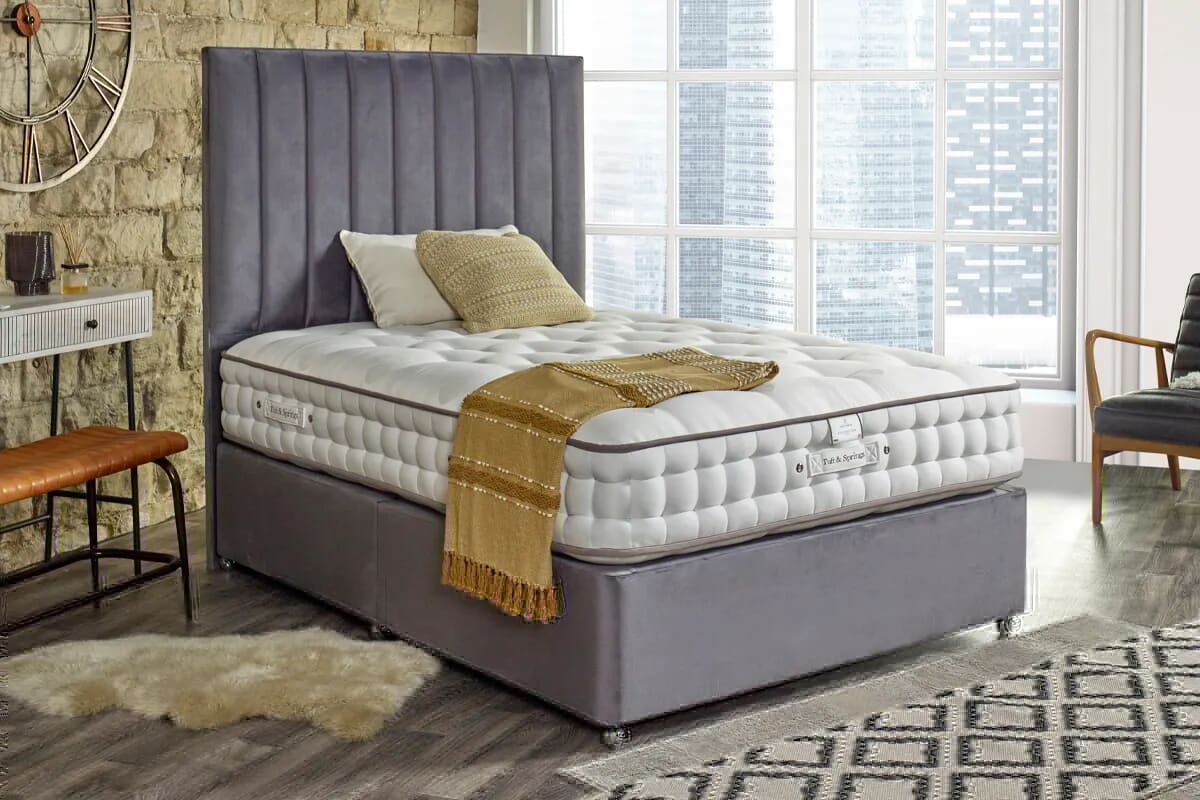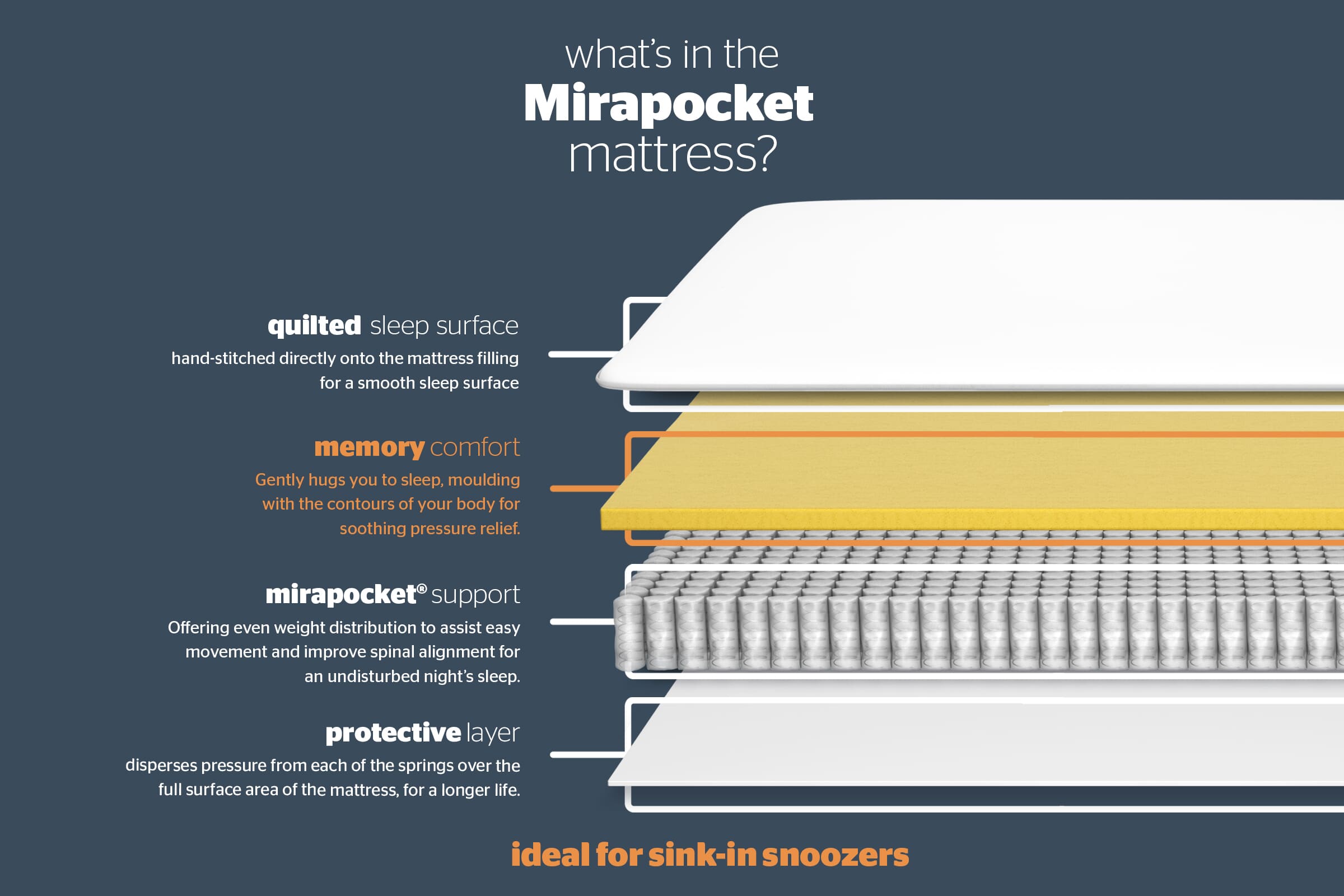Last updated: May 2025
Best Mattress For Arthritis
Looking for a mattress that helps ease arthritis and joint pain? Here's how to choose.
Arthritis is a deeply debilitating and painful condition that can strike at any age. Living with chronic pain continually is exhausting. So, it’s vitally important that your bed offers you the comfort and support you need to get a good night’s rest.
Arthritis affects the joints, so any mattress you choose should ensure that pressure points at vulnerable locations such as the shoulders, hips, and neck, are avoided at all costs. As arthritis causes swelling and tenderness, even the lightest of pressure can cause considerable pain.
This is the case whether you suffer from osteoarthritis, rheumatoid arthritis, or a complex condition such as fibromyalgia, which causes a similar degree of discomfort and pain.

How does arthritis affect sleep?
Arthritis impacts every single aspect of your daily life, including your sleep. Choosing the right mattress can be a real challenge. You have to consider how the condition makes you feel as an individual.
Most commonly, arthritis causes considerable pain in the back, hips, neck, and shoulders. This makes it almost impossible to find a comfortable position when lying down. The constant interruptions caused by pain spasms lead to a poor-quality night’s sleep. This can develop into insomnia as you feel even more reluctant to go to bed in the first place.
Research by Arthritis UK has confirmed the correlation between pain and lack of sleep, creating a ‘vicious circle’ where the pain prevents sleep, and the lack of sleep can make the pain worse. Trying to break this cycle can be extremely difficult if your mattress isn’t giving you the support and comfort you need.
With increased fatigue leading to stiffness (exactly what you don’t want if you suffer from joint pain), muscle tension and headaches, the knock-on effect can also start to impact your mental health, as well as your physical health.
It can potentially lead to reduced concentration, poor memory, and depression. All of this shows that if you are already battling a condition like arthritis, the last thing you need is a bad night’s sleep making things even worse.




What is the best mattress for arthritis?
The key to a great mattress for arthritis is support. For many people, an orthopaedic mattress that pairs a spring core with a memory foam layer delivers the right combination of firmness, support and comfort. However, this may not work for everyone, so it’s important to take your time when choosing the right mattress.
If you want to find out more about orthopaedic mattresses, check out our Guide to Choosing Orthopaedic Mattresses.
As well as delivering plenty of support, the ideal mattress for arthritis will ensure that those specific pressure points are properly cushioned, so as not to inflame or antagonise already painful joints.
One of the best mattresses for achieving that essential pressure relief is a firm hybrid mattress, like the Tuft & Springs™ Ortho Brilliance 2000 Mattress.
With orthopaedic levels of support, the Tuft & Springs™ Ortho Brilliance 2000 Mattress helps to relieve aches and pains by cushioning your body with layers of sumptuous silk, cashmere, wool and cotton. However, you won't sink in to the mattress too much, as firm tension pocket springs keep your pressure points properly supported, an essential factor for the best mattress for arthritis.
This mattress is perfect for arthritis sufferers as it actively helps to align your spine, hips and shoulders, supporting you in the best sleeping position for your condition.
What is the best mattress for chronic pain?
Chronic pain is defined as pain that lasts for a long period, rather than short-term discomfort. That’s why it’s so important to make the right decision about your mattress before you buy.
While memory foam mattresses may give a certain amount of relief for some, others will find pocketed sprung options far more comfortable. You’ll also need to consider your sleeping position, with medium firmness mattresses better for side sleepers and back sleepers.
Our top tip: look at hybrid mattresses such as this medium firm mattress, the Silentnight 800 Mirapocket Memory Mattress which gives you the ‘best of both worlds’. These have sprung cores that distribute micromovements and dissipate them, so that you and your partner are not disturbed if the other tends to move around during the night. The additional layers of memory foam provide a more cushioned feel, but with no compromise on the level of support provided by that sprung core.
An adjustable bed and compatible mattress is another great option to help manage your chronic pain. These help to relieve tension and prevent undue strain on your body when getting comfortable, as you can easily adjust your position with the touch of a button.
An adjustable bed is also perfect if you suffer from arthritis, as they make getting in and out of bed so much easier, so if you wake up stiff and unable to move as easily as you'd like, you can still effortlessly sit up in bed and enjoy a better sense of independence. Take a look at our range of Uplift Adjustable Beds to see how these types of beds can help you manage your arthritis.
How should you sleep with arthritis?
There are several things you can do to help reduce the pain of arthritis when you sleep:
- Think about your sleeping position – sleeping on your front will put a greater amount of stress on your joints and will force you to twist your neck to be able to breathe easily. This again will strain the spine and put it out of alignment.
- If you sleep on your side, try putting a gel pad or pillow between your knees. This is to remove any additional pressure on your hips, knees, or ankles.
- Use a single thin pillow rather than plumping up two pillows. It’ll keep your neck in a neutral position and prevent pressure points from affecting your shoulders and neck.
- If you’re on steroid tablets, try to avoid taking them too late in the day as they’ll have a detrimental effect on your sleep pattern. They could cause you to toss and turn which could aggravate chronic pain.
If you are a front sleeper and unsure what mattress is best for your sleep, read our guide on the best mattress for front sleepers. Additionally, if you are a side sleeper, you can find out the best type of mattress for side sleepers by checking out our Buying Guides.
What is the best mattress for joint pain?
There is no actual evidence that one type of bed is better for arthritis than another. It is down to personal choice. However, because of the way that memory foam ‘cushions’ the body, it can be beneficial and provide some measure of relief from joint pain.
Both memory foam and firmer Reflex foam provide the support you need. As they mould to the shape of your body, they also allow you to find a comfortable position and stay in it without having to wriggle around. If you do move in the night, the foam adjusts to your body position. This ensures that you’re constantly supported.
If you want to find out more about memory foam mattresses, take a look at our guide to choosing a memory foam mattress for tips and information.

Is a firm mattress better for arthritis?
A firm mattress is not necessarily best for arthritis. Support isn’t dictated by the degree of firmness rating on a mattress. While some will prefer a much firmer mattress, others will feel more comfortable on a softer option.
Bear in mind what we said earlier about pressure points. A mattress that’s suitable for joint pain should avoid creating pressure in areas that are vulnerable to pain such as the hips, neck, shoulders, and lower back.
Even secondary areas such as the ankles, knees and elbows can be hypersensitive to pressure if you have arthritis or fibromyalgia in those joints. So, the firmness of a mattress needs to respond to your individual needs.
If you want to know more about the different levels of firmness, take a look at our Mattress Firmness Guide for a full rundown of the various types of mattresses available.
Choosing the right mattress can make a huge difference to your well-being and health, especially if you’re living with a long-term condition such as arthritis. Always consult with your medical professional, who will be able to give you tailored advice that’s appropriate to your condition.



